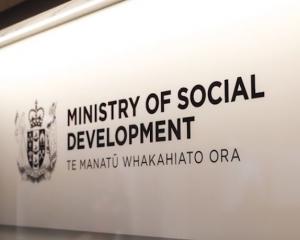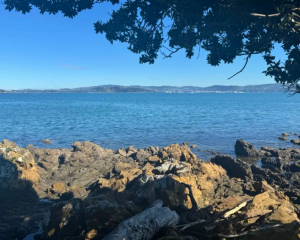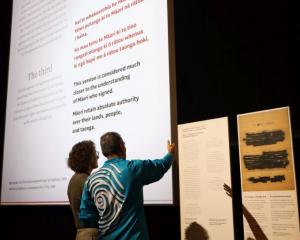Snowden's files reveal a heavy focus on "full-take collection" from the Pacific with nearly two dozen countries around the world targeted by our Government Communications Security Bureau.
Information from across the Pacific is collected by New Zealand's GCSB but sent onto the United States' National Security Agency to plug holes in its global spying network, the documents show.
From there, the documents show information collected by New Zealand is merged with data captured from across the world. It is then able to be accessed by the NSA's XKeyscore computer program through an online shopping-style interface, which allows searching of the world's communications.
This morning, Hager told Radio New Zealand that the documents revealed even more countries which New Zealand was spying on, and more information would come.
"The Five Eyes countries led by the US are literally trying to spy on every country in the world... and what we're going to be hearing about in the next few days is New Zealand in all kinds of very surprising ways playing a role in that."
He said New Zealand was "selling out" its close relations with the Pacific nations to be close with the United States.
"The reason we spy on those little Pacific countries... is not because New Zealand cares... it's just something to take to the table to belong to the [Five Eyes] club."
The details come today in a co-operative reporting effort between the New Zealand Herald, investigative journalist Nicky Hager and the Intercept news site, which holds Snowden's trove of documents.
The revelations were dismissed yesterday by Prime Minister John Key, who raised the spectre of terrorism while saying he could "guarantee" the allegations in today's Herald would be wrong.
Hager told 3News that Mr Key's pre-emptive response to the findings in the documents was "sad".
"In every other country, the governments haven't liked the fact that this news has come out, but they have engaged with it, they have debated it, they have talked about it.
"I feel a bit sad for New Zealand that all we have is [the Prime Minister] saying, 'Don't take any notice, it's wrong, don't look at it, we don't have to talk about it'. We can do better than that."
He said the documents didn't show anything illegal in the spying, because international spying was outside jurisdiction.
"These are moral issues," he said.
New Zealand won the support of the entire Pacific in its campaign for a seat on the United Nations Security Council, campaigning with the slogan "New Zealand stands up for small states". These revelations will see comparisons between New Zealand's claimed benevolent leadership role across the region and its actions for the Five Eyes intelligence network.
Similar revelations of spying on friendly nations abroad have caused diplomatic rifts, as it has emerged the US intelligence apparatus is heavily focused on surveillance for economic and political purposes rather than fighting terrorism.
It also raises questions about the GCSB's handling of communications from the many New Zealanders who work and live in the Pacific - and the many Pacific people who also hold New Zealand citizenship. It is illegal for the GCSB to collect the communications of New Zealanders.
This morning Labour leader Andrew Little told Radio New Zealand he was shocked to hear about the mass spying in the Pacific.
"While I accept the need for security agencies... I'm stunned at the breadth of information being collected."
Mr Little said it isn't a surprise that the GCSB would be monitoring the Pacific nations, he said he couldn't understand the intelligence interest in "hoovering up" all communications.
"This goes way beyond the brief," he said.
While the GCSB has always had a role carrying out surveillance on the Pacific, the Snowden documents show it grew massively from 2009.
In July 2009, a GCSB document said there were plans to shift the intelligence base at Waihopai to "full-take collection" . The phrase is one seen in previous Snowden releases and means everything is collected - the content of messages, internet traffic and the data of communications - including telephone metadata, showing who called who.
Later in 2009, the documents showed the GCSB's Waihopai base expected "full-take collection on Mission carriers running by October". The "Mission carriers" are the satellite dishes at the base.
By 2012, a British intelligence document stated the expansion in spying had gone ahead. It read: "GCSB have given us access to their XKS [XKeyscore] deployments at Ironsand [Waihopai], a GCSB comsat [communications satellite] site which is rich in data for the South Pacific region. Specifically, we can access both strong selected data and full-take feed from this site."
Mr Key said it was "bizarre" to reveal details about intelligence at a time when New Zealand faced a terror threat. "We've got the situation where we've Isil reaching out to cause harm to New Zealanders."
He said he would not reveal details of intelligence but said it was done for "really, really good reasons".
When quizzed mid-afternoon he said he had no idea what would be revealed. But, pointing to Hager's election bombshell Dirty Politics, he said: "Nicky Hager was wrong last time. His information is old. I guarantee you it will be wrong this time."
In response to specific questions, the Prime Minister's office dismissed Snowden's "stolen" information, saying the documents could be fakes.
"The Snowden documents were taken some time ago and many are old, out of date, and we can't discount that some of what is being put forward may even be fabricated," a spokeswoman said.
Challenged on claims of fabrication, John Key's office couldn't point to any basis for the claim.
A spokeswoman for the GCSB refused comment on "speculation" about "matters that may or may not be operational". "Everything we do is explicitly authorised and subject to independent oversight."











